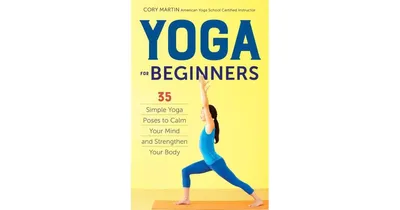Home
Posture Exercise Guide for Beginners: Developing a Posture Routine



Posture Exercise Guide for Beginners: Developing a Posture Routine
Current price: $7.99
Loading Inventory...
Size: OS
Posture is often a neglected aspect of our daily lives, yet it plays a fundamental role in our overall health and well-being. Good posture is not merely a matter of aesthetics or appearance; it profoundly impacts our physical health, mental well-being, and even our social interactions. The posture you maintain can influence how others perceive you, but more importantly, it can significantly affect how you feel and function.
The importance of good posture is rooted in the fact that our bodies are intricately designed to function optimally when our musculoskeletal system is in proper alignment. Posture, in this context, refers to the position and alignment of the body parts, especially the spine, in relation to one another during various activities, such as sitting, standing, and moving.
When your body is in correct alignment, the various structures, including bones, muscles, ligaments, and tendons, work harmoniously to support your weight and maintain balance. This not only prevents undue stress on specific body parts but also promotes the efficient functioning of various physiological systems. On the other hand, poor posture, such as slouching, hunching, or leaning, can lead to a wide range of problems and complications.
One of the primary reasons why good posture matters is because it helps reduce the risk of musculoskeletal problems. When your spine is properly aligned, it bears the body's weight evenly, reducing the chances of developing conditions like chronic back pain, herniated discs, and sciatica. Correct posture also reduces the risk of muscle imbalances, which can lead to discomfort and pain. Additionally, good posture is closely associated with better breathing and lung function. When you slouch or hunch, your lungs can't expand fully, which can lead to shallow breathing and decreased oxygen intake. This can result in fatigue, reduced alertness, and can even impact your mood and mental clarity. Maintaining proper posture, on the other hand, allows your lungs to function optimally, promoting better oxygen exchange and improved overall vitality.


















